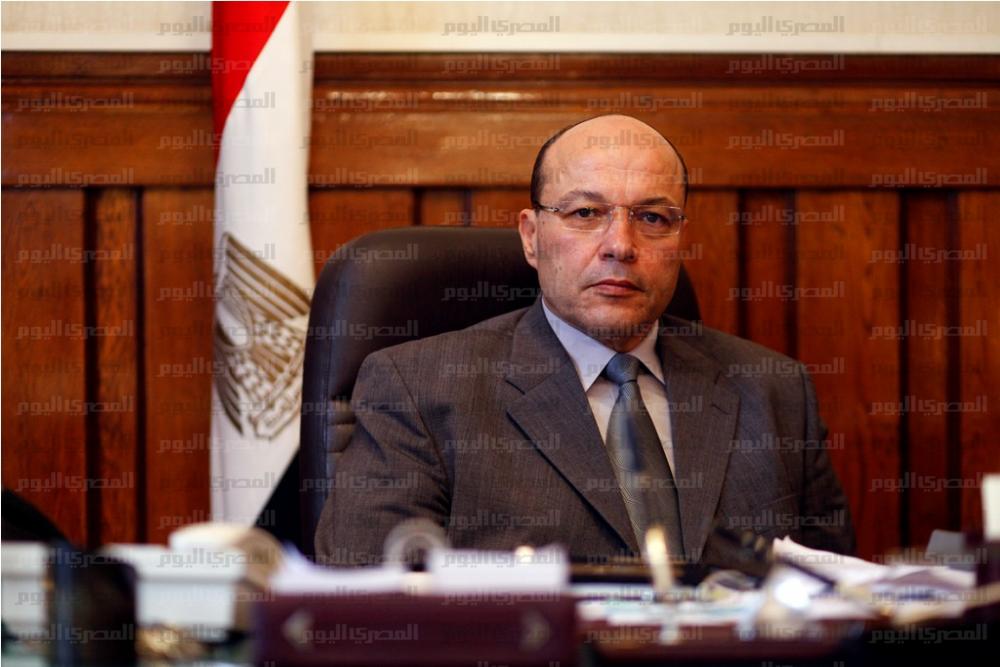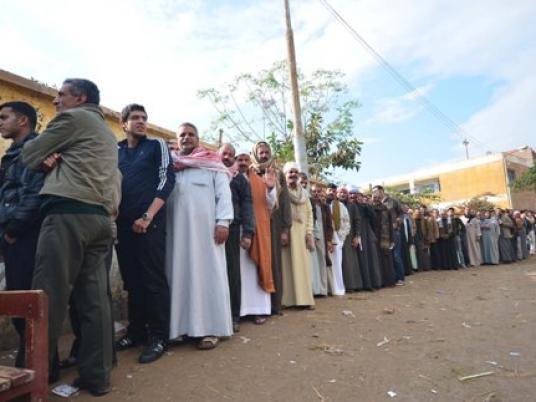In Egypt’s coming parliamentary elections this October, candidates from the ruling National Democratic Party (NDP) and from opposition parties will compete for 518 seats–that is, if opposition parties decide it’s worth participating at all.
Attempts have been made to join opposition parties in taking a stance against the current regime through boycotting the elections. With presidential elections due next year, many see this as an important moment to confront the practices of the NDP, who are widely believed to have been involved in election tampering, with results strongly and consistently in their favor. However, despite the belief that rigged elections will allow little chance to earn more than a handful of seats in parliament, most parties are determined to participate as usual.
One of the few parties now planning to carry out a boycott is the Democratic Front Party, led by Osama el-Ghazali.
El-Ghazali is aware that a boycott won’t be effective if the other opposition parties go ahead and participate in the elections, but says the decision is a matter of integrity. “Boycotting is a passive stance that is actually bad for my party, but it’s the right choice when there are no real elections,” he told Al-Masry Al-Youm.
As an example, el-Ghazali points to the latest Shura Council elections, in which opposition parties won four seats out of 182. Political observers including el-Ghazali, who refused a state-appointed membership in the council, say the elections were a fraud.
Other politicians also regard participating in the elections as a quick route to bestowing legitimacy on the ruling party’s methods. “I’m for boycotting the elections but in a positive way–making statements about why we choose to boycott elections against the NDP,” said Kamal Khalil, a leftist activist and member of the Popular Movement for Democratic Change, a loose coalition of Marxists and Nasserist organizations.
Khalil, who ran in the 2005 parliamentary elections against an NDP candidate, argues that the upcoming elections will give legitimacy to an “oppressive regime.”
A 2007 constitutional amendment aggressively limited judicial supervision of parliamentary elections in favor of a greater role for state-appointed monitors of election boxes.
Members of the National Association for Change, a recently formed gathering of opposition figures who are calling for political reform, earlier called for boycotting the elections, but have recently adopted a more ambiguous stance.
“The NAC doesn’t have a specific stance, but our initial position was to boycott the elections if there are no guarantees for transparency,” Hassan Nafaa, the association’s general coodinator, told Al-Masry Al-Youm directly after a meeting with opposition representatives at the Muslim Brotherhood headquarters.
“We’re calling on all parties to get ready for elections, but a decision on whether to participate or not will be postponed, depending on the given guarantees,” Nafaa added. Among seven demands for change, the NAC is calling for an end to emergency law, in effect since 1981, and the guarantee of free elections.
Mounir Abdel Nour, secretary general of the liberal opposition Al-Wafd Party, dismissed calls for a boycott. “It is necessary to participate and to seek guarantees for fair elections,” he said.
Fair elections, according to Abdel Nour, require amending the election law and easing procedures for voter participation. “Achieving fair elections could be done by uniting all political groups and putting pressure on the government.”
Leaders of the leftist Tagammu Party also agree that boycotting the elections could actually leave more room for manipulation by the regime.
“Our decision is always to get ready and participate in the elections, and to face the rigging-battle. Boycotting will not guarantee transparent elections. If we wait for them to stop rigging, than we will never participate in the elections,” said Refaat el-Saeed, head of the Tagammu Party.
The pan-Arabist Nasserist Party has also confirmed its decision to take part in the elections. “We’ve discussed boycotting, but pro-participation opinions are stronger in the party,” said Sameh Ashour, the party’s vice president.
Other opposition groups are undecided on whether or not to run in the parliamentary elections.
The Muslim Brotherhood, whose members hold one fifth of seats in the current parliament, has decided to prepare for the elections, but not to run unless there are certain guarantees in place. Earlier this month, Essam el-Erian, a prominent Brotherhood figure, told Reuters that the organization would field 200 candidates, a statement he later denied.
Political analysts say boycotting could send a strong message to the ruling party, but only if the boycott is a collective decision. “As a matter of fact, Egypt has around five active opposition parties, and they are not uniting over the decision, which limits the effect of the boycott,” said Amr Hashem Rabeei, political analyst and expert on parliamentary elections at Ahram Center for Strategic Studies.
According to Rabeei, in order to guarantee free elections, the entire Egyptian law on practising political rights should be amended. Representatives for the candidates should have access to the polls, Egyptians should be able to vote using their national ID cards instead special election cards, and Egyptian expatriates should have the right to vote. These requirements are similar to the demands of the NAC.
In the last 2005 parliamentary elections the NDP won 311 seats, while the Muslim Brotherhood, running as independent candidates, won 88, and other opposition party members and non-affiliated independents won 36.
Whether Egypt’s opposition parties will be prepared to unite ahead of this year’s vote in order to achieve a different breakdown of results remains an open question.


